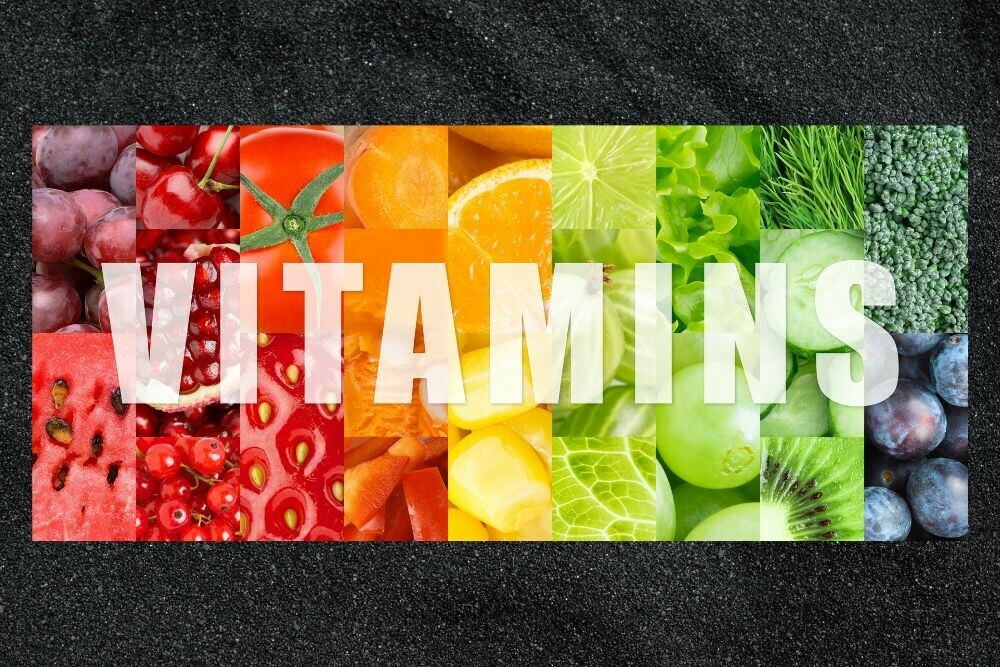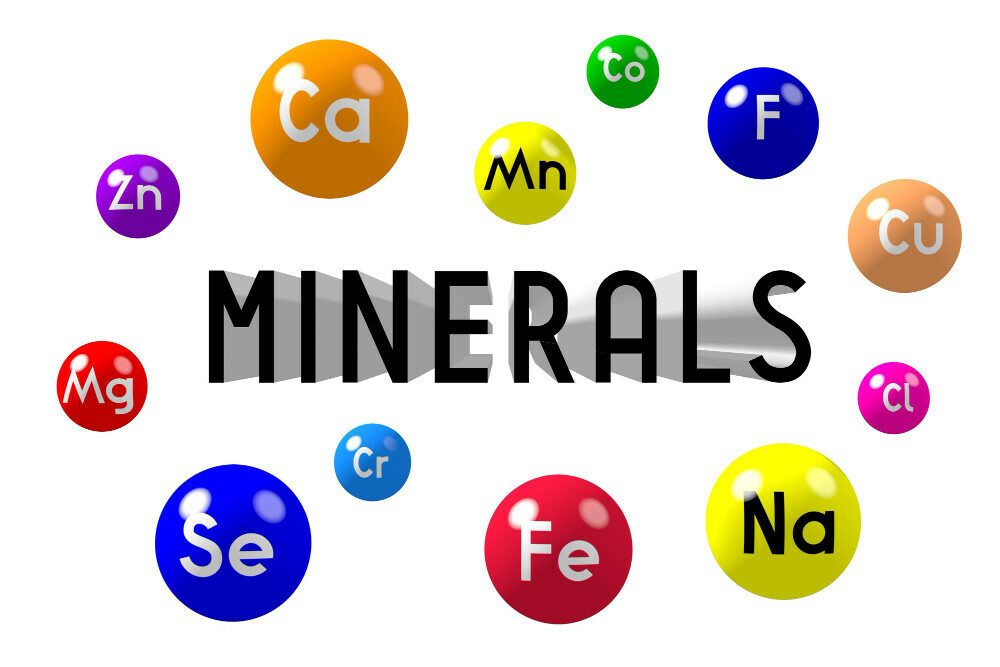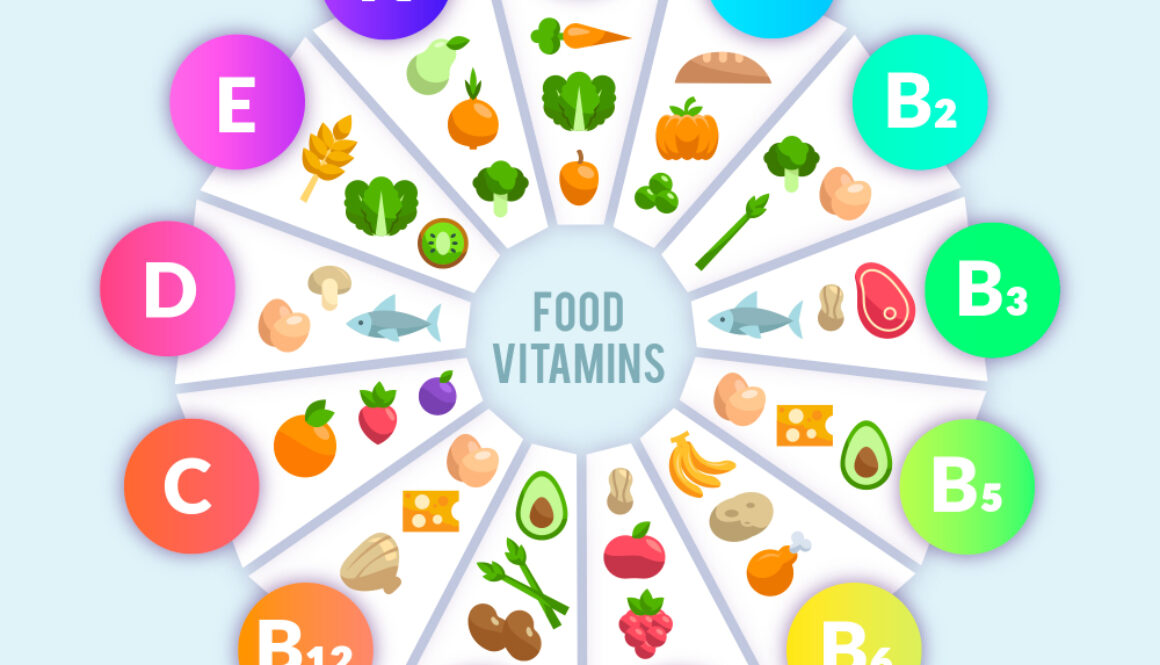Vitamins And Minerals Decoded – Empowering Your Diet
Ensuring you get the right balance of vitamins and minerals goes beyond simply eating your fruits and vegetables. It’s about making informed choices and sometimes considering supplements, especially when your diet might not meet all your nutritional needs.
Remember, no single food contains all the vitamins and minerals you need. But by following a few simple guidelines and being mindful of your body’s changing requirements, you can create a diet that lays a strong foundation for your health.
Vitamins = Vitality

Vitamins are organic compounds that are crucial for maintaining health and wellness. Unlike macronutrients like fats, proteins, and carbohydrates that provide energy, vitamins support many biological processes.
Our bodies distinguish vitamins based on their solubility. Fat-soluble vitamins, including A, D, E, and K, are stored in the body’s fatty tissue and liver. In contrast, the others are water-soluble. We do not retain the eight B vitamins and vitamin C in sufficient quantity, so we must regularly replenish them.
Each of the 13 essential vitamins plays a specific role. For instance, vitamin C aids in healing wounds and maintaining healthy skin, while vitamin D is crucial for bone health and immune function. A proper balance is vital: too little can lead to deficiencies with various symptoms, while too much – often due to excessive supplementation – can cause toxicity.
A balanced diet typically provides all the vitamins your body needs to function effectively. However, certain conditions, age, or lifestyle choices may affect your vitamin requirements. Maintaining this balance is where a conscientious understanding of vitamins and minerals becomes essential, setting the stage for exploring the minerals crucial to our health in the next section.
The Essential Minerals: Functions and Sources
Minerals are more than just rocks found on the earth’s surface; they’re foundational components of your body’s construction and function. They manage processes from muscle contractions to nerve signalling and are crucial in bone structure and heart health.

We frequently hear of calcium and its role in bone health, but that’s just the start. Potassium regulates blood pressure and aids in nerve function, while iron is vital for transporting oxygen in your blood. Magnesium helps with muscle and nerve functions, supports the immune system, and keeps the heartbeat steady.
While it’s possible to get these essential minerals from supplements, aiming to include a variety of natural food sources in your diet is more sustainable and beneficial. Foods rich in minerals include dairy products for calcium, leafy greens for magnesium, and meats and legumes for iron.
Understanding the recommended daily allowances of these minerals is vital, and it’s more straightforward than it sounds. Simple guidelines based on age, gender, and life stage are available to help determine the right amount you need. If you need more clarification, a healthcare provider can offer advice tailored to your needs.
The Interplay of Vitamins and Minerals: Creating a Balanced Diet
It’s not just the individual vitamins and minerals that matter, but how they work together that counts. A balanced diet is essential for the synergistic effects of these nutrients and to ensure you’re covering all your nutritional bases.
Diversity in what you eat is the foundation of a diet that provides a complete spectrum of the vitamins and minerals your body requires. Include fruits and vegetables, whole grains, lean proteins, dairy, and healthy fats in your diet.
Let me share some practical advice: if you aim to include at least five different coloured foods in your meals, you’re on the right track. This simple strategy is a shorthand way of guaranteeing a variety of nutrients are on your plate.
Life stage and lifestyle are critical factors to take into account. For instance, pregnant women need more folic acid, growing children require more calcium for bone development, and athletes might need additional electrolytes like potassium and sodium to compensate for what they lose through sweat.

Beyond the Basics: Safeguarding Your Nutritional Health
Supplements can be beneficial, but it’s crucial to approach them cautiously, understanding when and how to incorporate them into your health regimen.
Another aspect of nutritional health is being aware of food fortification. This process involves adding nutrients to foods that don’t naturally have them. It’s been instrumental in nearly eradicating conditions like rickets and pellagra. However, it’s essential to remain mindful of your food quantity, as excessive intake can lead to other health issues.
Every person is unique, and there isn’t a one-size-fits-all solution to nutrition. Seeking guidance from a healthcare professional can help tailor a diet to your needs, accounting for factors like age, activity level, health conditions, and genetic predispositions.
To ensure you’re on the right track for long-term nutritional health, foster good habits such as reading labels, eating various nutrient-dense foods, and staying abreast of the latest nutrition research. Remember, a proactive approach to your diet can have significant benefits for your overall well-being.
Resources:
Vitamins & Minerals
https://www.betterhealth.vic.gov.au/health/healthyliving/Vitamins-and-minerals

